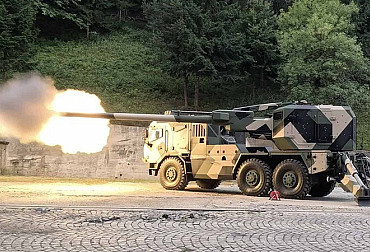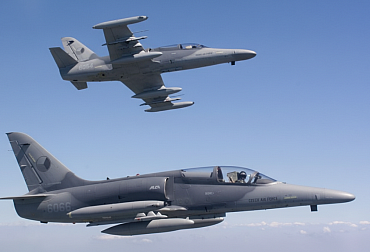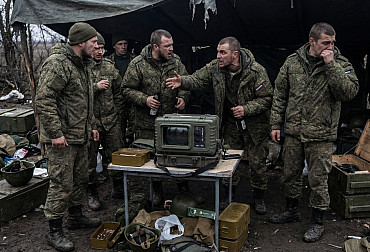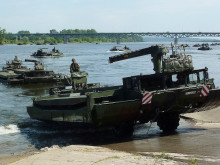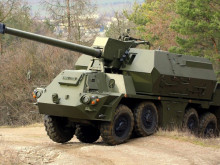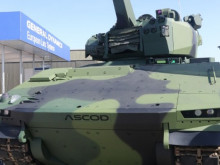Jana Černochová: 2% of GDP for national defence makes sense for building our own defence
Changes to defence laws, defence funding of 2% of GDP from 2024, but also ongoing military contracts – this was the agenda of yesterday's 24th meeting of the Defence Committee. As in every session, the committee dealt with the situation in Ukraine, but decided to discuss this item, along with the delivery of MADR mobile radars from Israel and ballistic vests for soldiers, in closed session.
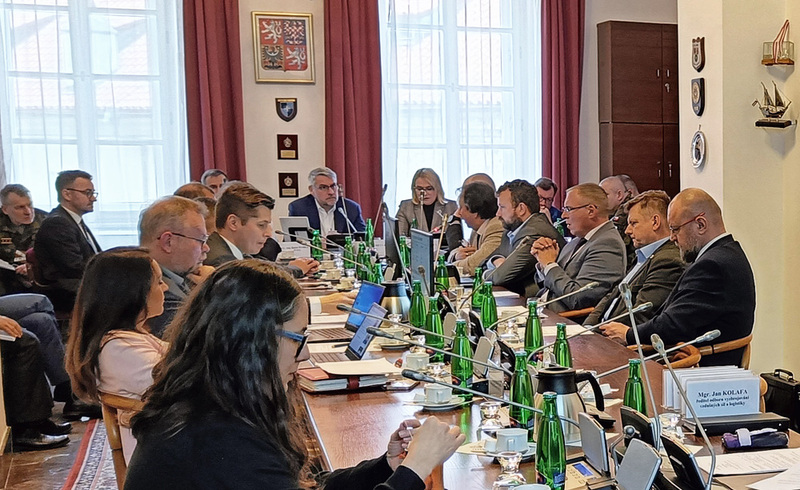 Picture: Changes to defence laws, defence funding of 2 % of GDP from 2024, as well as ongoing military contracts – this was the agenda of yesterday's 24th meeting of the Defence Committee. | Jan Zilvar / CZ DEFENCE
Picture: Changes to defence laws, defence funding of 2 % of GDP from 2024, as well as ongoing military contracts – this was the agenda of yesterday's 24th meeting of the Defence Committee. | Jan Zilvar / CZ DEFENCE
At the start of the meeting, the Committee discussed the Government's proposal for the deployment of MoD forces and assets to support the International Criminal Court's investigation into Russian aggression against Ukraine and training and advice in Niger. This material was discussed by the Government on 8 March and submitted to the House of Commons for consideration. According to this proposal, members of the Military Police would operate in Ukraine to support the investigations carried out by the aforementioned International Criminal Court (ICC). On this subject, Defence Minister Jana Černochová said the following: "The ongoing conflict in Ukraine is accompanied by blatant war crimes, crimes against humanity, and it is therefore unacceptable that these crimes remain unsolved and the perpetrators unpunished." She also recalled the work of police officers in dealing with crimes in the former Yugoslavia. "Therefore, we propose for approval a proposal for the deployment of Ministry of Defence forces and assets assigned to the ICC to support the investigation of crimes under international law committed in connection with Russian aggression against Ukraine outside the territory of the Czech Republic, up to a total of 15 personnel, for a period from the date of approval by the Parliament of the Czech Republic until 31 December 2024. The task would be carried out in several four to six week cycles. It is expected to operate mainly in Ukraine, of course, and possibly also in the Netherlands, where the international court is based," explained the minister, who also presented the operation of the Czech Armed Forces soldiers in Niger. In this case, the Ministry of Defence meets the requirements of the European Union. According to the Minister, the Sahel region is very important, not only because we have already had experience there from our mission in Mali. The infamous Wagner group is active in the area. According to Černochová, there is also a risk of another wave of migration from this region to Europe. "Niger is well aware of the growing risks in its region and intends to significantly expand its armed forces in the coming years. For this reason, we are proposing for approval the deployment of forces and assets in Niger for training and advisory purposes, up to 20 personnel, for a period from the date of Parliamentary approval until 31 December 2023," the Minister added.
During another committee meeting, Minister Černochová presented a group of laws amending certain laws in the field of defence. "Specifically, there are proposed changes to the ability of the armed forces to intervene against drones over our bases, as well as changes to improve transport capabilities by introducing so-called military trains. There should also be a possibility of training of the armed forces in the facilities of state-owned enterprises and contributory organisations of the Ministry of Defence and, last but not least, the modernisation of the use of data for the purposes of national defence. The proposal contains a predetermination for the addition of the armed forces with the obligation to undergo military training. The law also introduces an additional option of voluntary assumption of conscription. In addition, the attractiveness of the active reserve is increased by new incentives and improved conditions for their activities," the minister said. In the ensuing discussion, MPs then pointed to possible difficulties in complying with data protection or the need for a broader renewal of the law. In particular, they raised concerns about the newly created position of National Security Adviser, which is also part of the package of changes mentioned above. The next change in the defence ministry should be the draft law on the financing of the defence of the Czech Republic and on amending Act No. 218/2000 Coll., on budgetary rules and on amending some related laws. "It enshrines the government's obligation to propose in the state budget defence spending of at least two per cent of GDP, which is a commitment that both makes sense for building our own defence and that we declared in the Alliance in the 1990s, and unfortunately we have not been fulfilling this commitment for twenty years," the minister said. The subsequent debate confirmed the need for stable financing of the Czech Army, especially for strategic projects. Under the proposed amendment to the law, the government would decide on these projects by 31 May of the previous year.
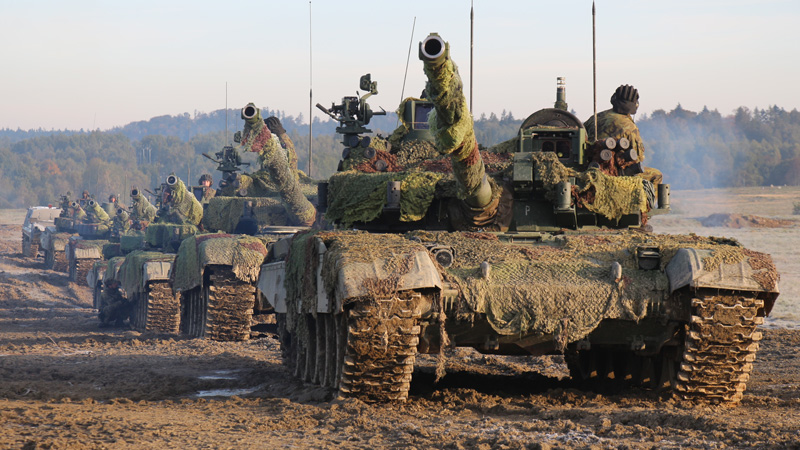 Picture: The legislation is mainly intended to bring stable funding to the ministry at the level of 2 % of GDP, a commitment that both makes sense for building our own defence and that we declared in the Alliance in the 1990s and have unfortunately not been fulfilling for twenty years. (illustration photo) | Mjr. Ladislav Kabát
Picture: The legislation is mainly intended to bring stable funding to the ministry at the level of 2 % of GDP, a commitment that both makes sense for building our own defence and that we declared in the Alliance in the 1990s and have unfortunately not been fulfilling for twenty years. (illustration photo) | Mjr. Ladislav Kabát
The Defence Committee also discussed the decision of the Regional Court in Brno, which upheld the imposition of a fine of CZK 550 million on the Ministry of Defence for the purchase of multi-purpose army helicopters. The minister confirmed to the committee members that the ministry had received a written evaluation on 8 March and also stressed that she would lodge a cassation complaint against the decision. The rapporteur for this item, MP Lubomir Wenzl told CZ DEFENCE: "I consider this to be a very reasonable and sensible decision." In his view, the ministry must defend its position as a good manager.
The next part of the meeting was closed, but Minister Černochová told journalists before the meeting that she believes in the success of the overall process for the MADR system despite the complications in the military trials. "Of course, we are pushing the Israeli side to quickly eliminate some shortcomings. We firmly believe that we will reach an agreement with them within the deadlines that are there," Černochová said. As far as ballistic vests are concerned, the minister said there is no major problem here either. The acquisition is delayed by the failure to deliver the correct samples that should have been delivered by the winning company. Michal Ratiborský, the rapporteur of the item under discussion concerning the delivery of the MADR system, also spoke for CZ DEFENCE. When asked what he thought was holding up the successful completion of the military trials, he said that since the signing of the contract in 2019, the biggest obstacle was probably the coronavirus pandemic, which prevented more effective negotiations on more precise terms. "It is now delayed, according to the Defense Ministry, because of the failed military trials due to mistakes on the part of the Israeli contractor. We have information from other sources that the mistakes are not purely on the Israeli contractor's side, but the problem is with the incompatibility of the Czech software, which is about 20 years old and has problems connecting modern equipment," the MP said. Another problem is the communication of the Czech companies operating within this tender. "Retia complains of non-communication with the VTU company, all communication is done through the Israeli partner," said MP Ratiborský.
This time we also asked the MPs of the Defence Committee a poll question: If the Parliament of the Czech Republic approves the draft law on financing the defence of the Czech Republic, amending Act No. 218/2000 Coll., on budgetary rules and amending some related laws as of 1 July 2023, the expenditure of the defence ministry will increase to approximately CZK 150 billion as of 1 January 2024. In your opinion, will the Ministry be able to prepare new tenders under the revised Concept of Build-up of the Czech Army this year or will this amount, especially in the first period, be used to cover the purchases currently under negotiation?
Níže uvádíme odpovědi členů výboru:
Lubomír Metnar (ANO), Chairman of the Committee
The ANO Movement supports the growth of the military budget and the fulfilment of the commitment of 2% of GDP to our allies in the Alliance, as well as efforts to achieve stability in planning and effective management of defence spending. If the defence budget were to reach 2 % of GDP in 2024, the additional requirement for defence spending in 2024 would amount to an increase of approximately EUR 26 billion, which is not envisaged in the medium-term outlook approved in the 2023 budget. The Ministry of Defence has indicated that it will claim these additional funds if the Defence Financing Bill is passed. At today's Defence Committee meeting, this Bill was widely discussed and we were assured, including by the Chief Director of the Armaments Section, that projects will be prepared which will be financed from the increased funds. This assurance from the Department was very important to the Members of the Committee, as the funds must be spent efficiently and effectively. As the current MTEF did not provide for these funds, we will be asking the Ministry of Defence for an updated MTEF, including a realistic plan for the use of the planned additional expenditure.
Miloslav Janulík (ANO), Member of the Committee
In my opinion, this is practically unfeasible under the current conditions, and it is questionable whether it is really so necessary, if it is not just such a 'hurrah' gesture. We often hear about what purchases are being negotiated in the media. It certainly requires the deepest possible analysis. Nothing in the style of the F-35.
Karel Krejza (ODS), Member of the Committee
I firmly believe that the ministry will make it. It must! Otherwise, the aim of the new law is to support compliance with the alliance commitment – to achieve an annual share of defence spending in the state budget of at least 2% of GDP. The law newly introduces the possibility for the MoD to transfer unspent expenditure intended to finance an individual strategic project of the Czech Army to similar strategic projects. This means, among other things, that the entitlements from unspent expenditures on strategic projects of the Army could no longer be reduced by the government. The law will also allow for the accumulation of this portion of national defense spending across budget years.
Petr Liška (STAN), Member of the Committee
I want to believe that it will be able to do so, although the history of some of the more crucial and necessary tenders from recent years shows their problematic course, which the ministry is still struggling with today. The second thing, of course, is whether there will be anyone to buy from, because demand is high and our military is not such a large market for suppliers that we get a possible priority in delivery times. Personally, I would be bothered if resources for acquisitions accumulated in the fund and were missing in other departments, e.g. education, regional development – e.g. in support for structurally affected regions. In addition, even if there were sufficient resources in the fund, we would still not meet our commitments to NATO, because the 2 % is calculated only on expenditure spent or contracted.
Michaela Opltová (STAN), Member of the Committee
Since the beginning of our mandate, we have declared that we want to increase the budget to 2 % of GDP. If we have a clearly defined path to this goal - it does not mean that the army or the Ministry of Defence does not know what to do with it. Of course, it depends on how the tenders currently under way can be negotiated, but we must also take into account the investment in the relevant infrastructure. I am not worried about the department's budget not being able to be used to its full potential, nor am I worried about unnecessary waste of money. Of course, as an MP, I will ensure that the allocated funds are used according to the rules and strategic objectives.
Michal Ratiborský (ANO), Member of the Committee
I believe that with the current readiness of acquisitions and the speed of competition for new ones, it is impossible to spend this money. The only way to use these funds is to cover purchases such as the F35 in question.
Radovan Vích (SPD), Member of the Committee
So far, there is no indication that the CZK 150 billion of acquisitions could be fully implemented. Major strategic projects, e.g. tracked IFV, have not yet been approved, and thus the prerequisites for spending the army budget at this level are not met. If the Concept of Build-up of the Czech Army is revised, then the question is – for which projects, whether they will be prepared and tendered in time, and also whether the army will be able to accommodate them in a meaningful way. Personally, I would see a big gap for replenishment of arms, equipment and material for a war-developed army. However, this is not a priority of the Ministry of Defence.
Lubomír Wenzl (ANO), Member of the Committee
If the amendment to Act No 218/2000 Coll. is approved by the Parliament of the Czech Republic, the Ministry of Defence will receive a significant increase in its budget in the coming years. This means that in 2024 its budget would already amount to approximately CZK 150 billion. I assume that the MoD has a plan on how to really make sense of this amount - both for financing existing projects and for upcoming projects. If the amendment in question is approved, the MoD must fully use the increased funds for the needs of the Army of the Czech Republic.











